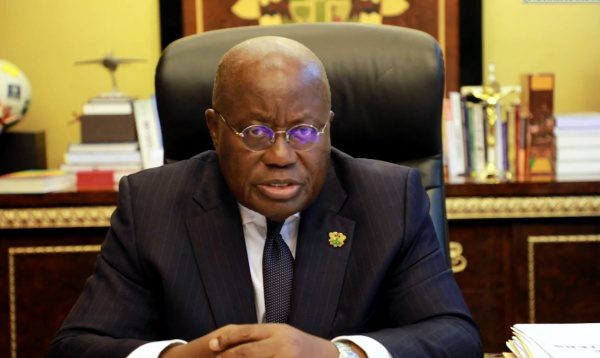
The much-talked-about 10 % tax on gross winnings of game of chance including sports betting has kicked in starting Monday, January 1, 2024.
The Government, through the Finance Minister Ken Ofori-Atta, announced the implementation of a 10 % withholding tax on betting and other game of chance to shore up revenue generation while expanding the tax bracket, during the presentation of the 2024 budget statement to parliament.

A move the Minister described as “burden sharing”, as the government continues to work to bring the ailing economy back to its glory.
The country’s sole revenue mobilisation body, Ghana Revenue Authority (GRA), subsequently directed the National Lottery Authority (NLA), and Private Lotto Operators (PLOs) to prepare for the implementation effective August 15, 2023, which was later extended to the end of December 2023.
How withholding tax definitions come into play
According to the GRA, Withholding Tax (WHT), “is a tax which is deducted at source by a withholding agent (a person required to deduct tax) when making payment to another person and accounted for later to the GRA.”
The Authority further states that “A registered partnership, company and trust and other businesses that make payment to another person for goods or services bought qualify to withhold the tax unless the person is exempted from paying the tax.”
The company, registered partnership, trust, and other businesses must be registered with the GRA to be allowed to withhold tax from business transactions.
Per the latest directive, patrons, players, punters, operators, and tax consultants must take note that the NLA and PLOs are agents of GRA mandated by law, the Income Tax (Amendment) Act, 2023 (Act 1094), to withhold 10 % of gross winnings termed as “Gross Gaming Revenue (GGR).”
Revenue mobilisation efforts by GRA are expected to increase
As captured in Appendix 3B of the 2024 Budget statement, the Government of Ghana (GoG) hopes to mobilise some over GHS 176.4 billion in revenue and grants, of which over 80 % is expected to come from taxes.
The GRA estimates raking in over GHS1.7 billion in revenue from the betting and gaming industry this year.
Despite the campaign mantra by the Government in 2016 to move the Ghanaian economy from taxation to production, it is worth noting that the Government has, between 2017 and 2023, introduced more than 17 new taxes, increased and reviewed some old levies and taxes, and scrapped a few others.
Government in 2017 introduced the VAT Flat Rate Scheme (VFRS), for retailers and wholesalers at 3 %. GETFund Levy and NHIL were turned into ‘straight levies’ which cannot be reclaimed and introduced under VAT withholding in 2018. Communications Service Tax (CST) was rolled out in 2019 at 9 %, later reduced to 5 % in 2020.
In 2021, four more new taxes were introduced. They are the Covid-19 Recovery Levy, Financial Sector Clean-up Levy, Energy Sector Recovery Levy, and Sanitation and Pollution Levy.
The famous Electronic Levy (E-levy) was introduced in 2022 at 1.5 %, which was reduced to 1 % in March 2023 after public outcry.
MORE ON E-LEVY
- Failure of e-levy to meet target will create bigger credibility crisis for the battered economy – Mahama
- E-levy was not even needed in the first place – Murtala
- E-levy reduced to 1%, affects all transactions.
Withholding Tax on Realisation of Assets and Liabilities, Pension-Related Tax Exemption for 2023, Increase in Special Elected Rate for Gifts and Gains, and Increase in Concessionary Period Income Tax Rate were introduced in 2023.
Other levies introduced in 2023 include the Growth and Sustainability Levy, VAT was increased by 2.5 % pushing it from 12.5% to 15%. The concessionary Income Tax Rate for temporary tax concession saw an increment to 5 %.
Some tax handles were also amended in an attempt to expand the tax net. They include the Excise Duty Amendment Act, Minimum Chargeable Income Taxation, and Income Tax for companies in lottery, betting, and games of chance, as well as Withholding Tax on winning on lottery, betting, and games of chance.
Revenue assurance for IMF bailout
President Akufo-Addo and Finance Minister, Ken Ofori-Atta made a complete U-turn to the International Monetary Fund (IMF) for the 17th time for a USD$3 billion extended credit facility programme as balance of payment support.
“Let Mahama’s IMF deal be the last”, said President Akufo-Addo, adding, “What I am saying to Ghanaians, to all of us, is that, in the 62 years of our independence, this was the 16th IMF bailout programme that the nation had gone into. Let it be the last time that we would resort to an IMF programme.”
President Akufo-Addo further noted, “from now on, we are going to maintain the discipline in the management of our public finances so that we will never have to have recourse to an IMF bailout programme again.”

Following the Government’s resolve to seek the 17th IMF bailout despite being a “proud nation”, the Government needed to improve its domestic revenue generation—tax-to-GDP. The Fund expects Ghana’s tax-to-GDP to increase to 16.2% by the end of the programme in 2026.
Ghana ended 2023 with a tax-to-GDP ratio of 14% with an end-of-year projection of 14.7%, according to the Fund. Although the informal sector has contributed relatively little, the formal sector accounts for most of the tax revenue.
It is therefore imperative for the Government to widen the tax net to meet these targets while meeting other obligations to secure the second tranche of the USD$3 billion dollar bailout.
Although the Government has consistently blamed the onslaught of Covid-19 and Russia’s invasion of Ukraine for destroying the gains made by the economy.
However, economists as well as the IMF have maintained that the gains made were not strong enough to absorb the shocks from the pandemic and the Russia-Ukraine war.

